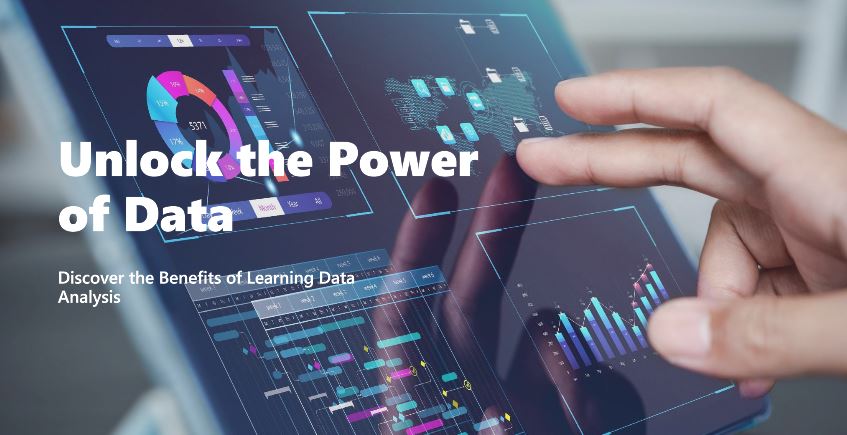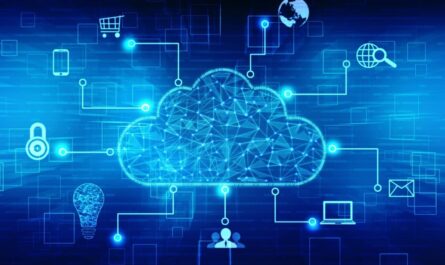Introduction
In the present data-driven world, the ability to analyze and derive insights from data has become a highly sought-after skill. Data analysis is not just reserved for data scientists and analysts; it’s a valuable skill that can benefit individuals in various fields and professions. Whether you’re a student, a professional, or simply curious about the world of data, read on further to know the compelling reasons to learn Data Analysis Online Course.
Why you must learn Data Analysis?
- Informed Decision-Making:
Data analysis enables individuals and businesses to make more informed decisions. By analyzing data, you can gain valuable insights that inform strategies, policies, and daily choices, leading to better outcomes.
- Career Advancement:
Proficiency in data analysis is a valuable asset in the job market. Many industries, including finance, healthcare, marketing, and technology, value data-driven decision-making, making data analysts and data scientists highly sought after.
- Problem Solving:
Data analysis equips you with the skills to solve complex problems. Whether it’s identifying trends, predicting outcomes, or uncovering patterns, data analysis helps you tackle challenges effectively.
- Improved Efficiency:
Data analysis can streamline processes and improve efficiency. By identifying bottlenecks and areas for optimization, you can save time and resources in your personal and professional life.
- Better Understanding of the World:
It allows you to explore and understand the world around you. Whether you’re interested in social trends, economic patterns, or environmental changes, data analysis can provide valuable insights.
- Personal Finance Management:
Learning data analysis can help you manage your finances more effectively. Analyzing your spending habits, investment portfolios, and budget can lead to better financial decisions and long-term security.
- Entrepreneurship:
Entrepreneurs can benefit significantly from data analysis. It can help in market research, customer profiling, and business strategy development, increasing the chances of startup success.
- Scientific Discovery:
Data analysis plays an important role in scientific study. It allows scientists to analyze experimental results, identify correlations, and draw meaningful conclusions, advancing knowledge across various fields.
- Public Policy Impact:
Those interested in politics and public policy can use data analysis to assess the impact of policies, propose evidence-based solutions, and advocate for change in their communities.
- Continuous Learning:
Data analysis is a skill that evolves alongside technology. Learning data analysis provides an opportunity for continuous growth, as you can explore new tools, techniques, and datasets throughout your career.
It genuinely has a lot to offer. But people often get confused between Data Analysis and Analytics and consider them the same. Well, both of them are different and you must know the basic difference between them.
The basic difference between Data Analytics & Data Analysis
When contrasting data analysis vs. data analytics, it’s crucial to note that while these two concepts are somehow similar as well, but not identical. To clear the stir, Data analysis comprises extracting important meaning from data in a way that can be used to make effective decisions. While Data analytics on the other hand covers a broader scope.
It basically refers to the procedure of utilizing data and analytical tools and techniques to identify new insights and make predictions as per that. It’s in fact used for the benefit of a company. While data analysis targets inspecting data in its raw form. Likewise, data analytics utilizes numerous processes to exchange data for actionable information.
Many people think of data analysis and data analytics as similar in meaning because these concepts are relatively related. But on the bigger picture, Data analysis is a subpart of data analytics. It’s one of the well-known procedures or steps that data analysts follow to acquire insights from data. In fact, numerous professionals seem to utilize these terms interchangeably, which raises confusion. Well, at the same time, it’s quite important to keep in mind that while there’s a connection between these procedures, they’re quite different processes with unique aims and functions.
Future of Data Analysis
The future of data analysis promises to be both exciting and transformative, driven by advancements in technology and the ever-expanding volume of data. Well, machine learning and artificial intelligence will play pivotal roles, automating routine data tasks and enabling more sophisticated predictive and prescriptive analytics. Ethical considerations and data privacy will gain even greater prominence, shaping the way data is collected, stored, and used.
As data sources diversify, from IoT devices to social media, data analysts will need to build interdisciplinary skills and adapt to emerging data analysis tools and techniques. The future of data analysis is a dynamic landscape where those who boost innovation and continue to refine their skills will lead the way in harnessing data’s potential for insights and impact across industries.
Conclusion
Well, data analysis is not just a technical skill; it’s a versatile and essential tool for personal and professional growth. From the information listed above, it must be clear what importance it holds in the current scenario. Whether you want to make better decisions, advance your career, or simply satisfy your curiosity, learning data analysis opens up a world of possibilities. Imbibing information regarding the data-driven era and equipping yourself with the Data Analysis Courses in Delhi skills to navigate it successfully will be beneficial for your career in numerous ways.



